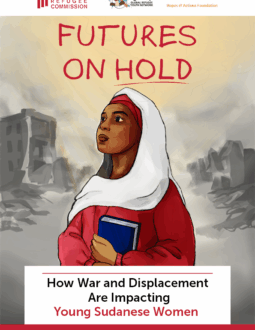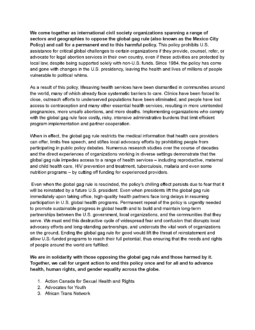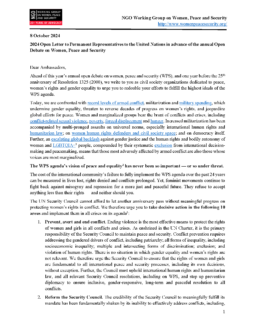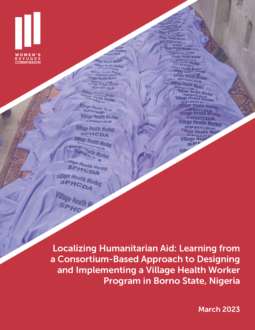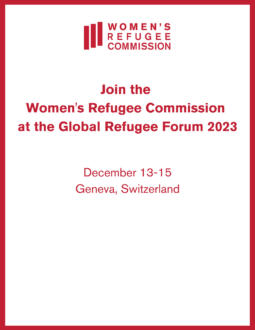
Global Refugee Forum 2023: Advocacy and Programming to Increase Availability of, Access to, and Quality of Contraceptive Services for Crisis-Affected Populations
PublishedThe Women’s Refugee Commission (WRC) proudly announced a series of pledges at the Global Refugee Forum 2023, including this one on contraceptive services in crisis-affected populations. The forum is the largest international gathering on refugees, held December 13-15 in Geneva, Switzerland.
Impact Statement: WRC will contribute to improving availability of, access to, and quality of contraceptive services for crisis-affected populations, including refugees, as part of life-saving, essential primary health care.
Pledge: WRC will develop and disseminate global advocacy briefs, learning reports, and other tools to advance availability of, access to, and quality of contraceptive services for crisis-affected populations, including refugees. To catalyze global commitment and investment, we will finalize and disseminate a suite of publications, including four briefs with recommendations targeting key decision-makers (donors, governments, humanitarian actors, and development actors); a learning brief reviewing best practices to deliver contraceptive services in crises; and a brief with recommendations focused on the Ougadougou Partnership (OP) region in West Africa. We will disseminate these documents to humanitarian and development stakeholders through key listservs and translate relevant materials into French to ensure uptake in Francophone regions.
Additionally, WRC will document and share learning from pilot programs designed to meet contraceptive needs among refugees who have fled two of the world’s most complex and devasting crises – those in Afghanistan and Tigray, Ethiopia. The pilots were implemented by Rahnuma Family Planning Association of Pakistan (FPAP) and the Sudan Family Planning Association (SFPA), in partnership with WRC, to expand contraceptive method choice and address barriers to accessing contraceptive services, including among youth and people with disabilities. WRC will publish and disseminate findings and recommendations from these pilots to inform and strengthen future contraceptive programming in crisis-affected settings.
Lastly, WRC commits to advancing the Global Health Cluster task team on Sexual and Reproductive Health’s objective to prevent unwanted pregnancy by co-leading the development of a publicly available database housing quality-approved, adaptable social and behavior change (SBC) materials for contraceptive services in humanitarian settings. WRC will widely disseminate the database so the materials can be used across diverse crisis settings to improve contraceptive programming.


